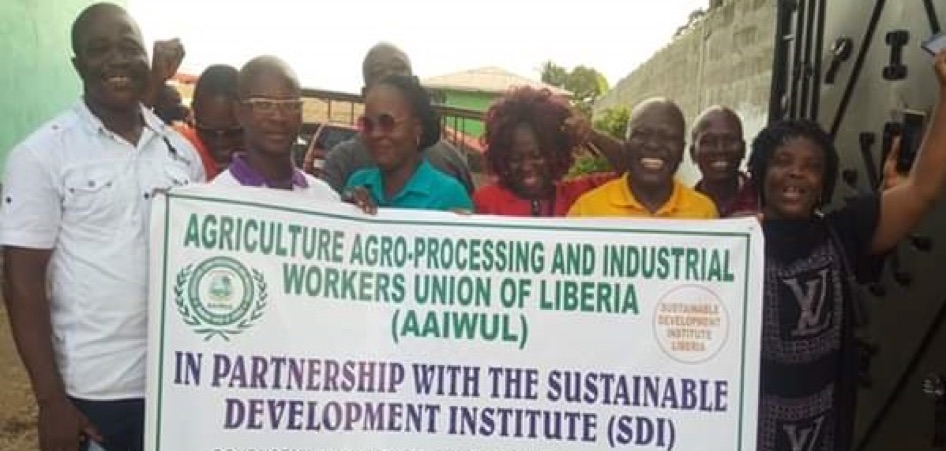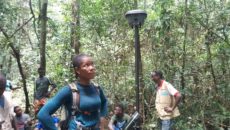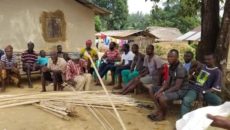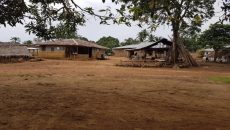BUCHANAN, Grand Bassa – Representatives of workers of Golden Veroleum-Liberia, or GVL, an international firm cultivating oil palm in Sinoe and Grand Kru, have participated in a two-day strategy workshop designed to develop needed skills as workers’ representatives.
The training comes ahead of discussions for a new collective bargaining agreement between workers and the GVL management.
The training occurred from Nov. 22-23 in Buchanan and was organized by the Agricultural, Agro-Processing and Industrial Workers Union of Liberia, or AAIWUL, with support from the Sustainable Development Institute.
Seventeen members of the workers’ negotiating team participated in the training.
According to AAIWUL’s secretary-general, Edwin Cisco, the training will sharpen the capacity and negotiation skills of union members who will participate in pending negotiations with Golden Veroleum leadership for a new agreement.
“Very soon, we will be engaged with the management of Golden Veroleum Liberia to negotiate a collective bargaining agreement for the next three years for workers of GVL. It should be from 2019 to 2021 and we want to ensure that the local members who will be on the negotiating table with AAIWUL’s capacities are built to the extent that they will be able to bring real and tangible benefits for the workers and their families in that part of Liberia,†Cisco said.
With its aim of abolishing abuses and bad labor practices, including violation of community land rights at agricultural plantations, AAIWUL is under enormous pressure to ramp up its workers’ negotiation skills, in order to attain the best terms possible for workers under the new collective bargaining agreement. Anything short of this crucial goal may trigger internal dissatisfactions and a potential breakdown of negotiations.
“Most often, you find out that a lot of conflicts emanate from the concession areas, and one of the key objectives of working with [the Sustainable Development Institute] is to ensure that we have a balance because the workers are also community dwellers,†he said.
“So, we don’t want to have a conflicting issue regarding labor rights, as well as issues of community dwellers, so that both workers and community dwellers can focus on what is needed for the community’s benefits, and increase productivity and efficiency on the job, as well as the workers having the fair share of their benefits and what they deserve.â€
For its part, the Sustainable Development Institute’s support for the training has been largely technical. The organization presented training modules on key topics ranging from effective community engagement, to national and international compliance protocols; while AAIWUL lectured workers’ representatives on negotiation methods, the balance of power techniques, and communication. Other topics presented included International Labor Organization Conventions, the Decent Work Act, and the Tripartite Policy Compliance.
As the national umbrella body of agricultural workers’ unions across Liberia, AAIWUL has been involved in numerous collective bargain agreements for its more than 10,000-strong membership. The group maintains four regional branches, including at the Firestone Rubber Plantation.
In December last year, and with support from USAID, the United Steel Workers, and Solidarity Center, the union provided training for workers at Golden Veroleum and Atlantic Resource Company in Sinoe, as well as for workers within the forestry sectors in Maryland, Grand Kru, River Gee, Grand Gedeh, and Gbarpolu.
The union’s secretary is, meanwhile, calling upon the government to increase its investments in the sector through new resources and policy incentives that augment and sustain productivity in the cocoa and palm oil industries. Partnerships with international investors will also be critical to achieving this goal.
In recent years, as slumps in the global economy continue to negatively impact Liberia’s key export commodities – rubber and iron ore, interest has grown regarding the need to diversify the economy, and to include cocoa, oil palm, and other cash crops as export commodities.
“AAIWUL’s intention is actually to ensure that the national government diversifies our economy especially to focus on agriculture so that we can be able to strengthen our economy and get from out of this economic quagmire that we finally find ourselves in because we have the land,†he said.
CORRECTION: A previous version of this article referred to the organization supporting the training as the Sustainable Development Initiative. It has been corrected to reflect its proper name, the Sustainable Development Institute.
Featured photo by Sampson David



